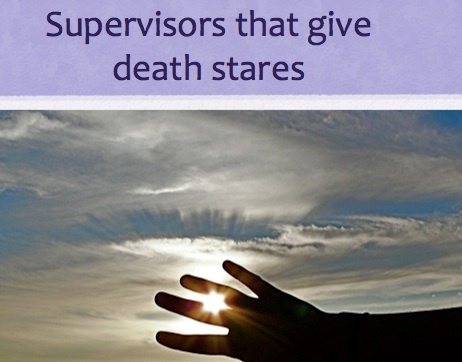About twenty-five years ago on her first job back in Phoenix, Kalpana was working 80 hours a week. During one such busy week, her supervisor requested her to take a break and come to the window to see the beautiful Phoenix sunset. He asked her to promise him that she will always make time for the sunset every day.
Back then, Kalpana laughed at him and replied, "Thank you, but I am not wasting time on a sunset, will save that for vacation." Fast forward two decades and she cannot recollect how they flew by.
Just recently, she remembered that moment and started to look for the sunset. What it forced her to do was to take a few minutes to reflect on the day and remember what is important in life, true happiness! The spontaneous feeling of joy and laughter!
Here, what Kalpana's supervisor did was an act of yoga. Watching the sunset in the midst of a busy workday connected him with nature and its beauty. Long working hours can take away the joy of being present and disconnect us from the things that are important. Rather, he could disconnect from all the stresses around him and find peace within himself. But most importantly, he was practicing Ahimsa, nonviolence.
We think of violence as a physical act. But letting our environment mess with our relationships and our authenticity is also an act of violence. Ahimsa is not limited to practicing nonviolence towards others. More importantly, it starts when one stands for himself. Not accepting violence for oneself. Not letting our work consume us. And the moment he decided to extend it to Kalpana, he was a yogi.
Kalpana's story took me back to my first job in management consulting. Back in 2001, I started my first real job as a corporate consultant with Arthur Anderson in Mumbai, India. As a minority, women represented five percent of employees. Needless to say, it was a prestige to land that job but it came with its "perks"!
As I recall, the first year was a big learning experience for me. The company conducted tons of training around communication skills, marketing, accounting, presentation etc., but nothing focused on relationships at workplace.
For my very first project, I was assigned a supervisor who was a brilliant young man, with the looks of Vin Diesel but was a complete ass. (Did I mention the very first Fast and Furious had just been released?) He walked as if he owned the place and was a complete bully.
I was a Certified Accountant (CPA) and had my bachelor's in finance but he made me run his personal errands which included collecting his laundry, sending flowers to his girlfriend, submitting his time sheet and expenses plus doing all his admin work after 5 p.m., so that he could leave.
I was working 80 hours per week in an unfriendly environment. Something I didn't expect but could not complain either.
After months of agony and crying quietly in the bathroom, one day my supervisor decided to have a talk. He told me bluntly that it was a "Dog Eat Dog World" and I had to toughen myself to survive.
He said that everyone goes through these unpleasant experiences when they start. But some more than others. It is just the way it is. He paid his dues and now it was my turn. That I had to go through the hardships and the grind to really succeed. And him being an ass made him powerful.
I sincerely believe that fifteen years ago, my mentor had his best intentions to make me stronger and wiser. He didn't know any better because that is what he went through.
This is a common scenario in the corporate world. But it is also an excellent example of how we allow mental and emotional violence on a daily basis. My supervisor let it happen to him and then decided it was only right for me to go through the same awful experience. The effect trickled down the corporate ladder.
These are two extreme examples of how our actions towards ourselves and our co-workers can change working conditions. The end result: Kalpana still works in Corporate America and is not just successful but also happy. And for me, after ten years of climbing up the ladder and across continents, I decided it was not for me.
Here the intention of Ahimsa -- i.e., the practice of nonviolence to ourselves and others -- is considered the first step of moral injunctions called yamas in yoga. The yamas are concerned with how we use our energy in our relationships, offering a solid ethical foundation. Following the golden rule of treating others as we'd like to be treated.
My question is why does the corporate environment have to be that way? Why don't we have more supervisors like that of Kalpana's who can guide us to find happiness in the long working hours, to find peace in the chaos, to find compassion in the competition and how not to lose our authentic self?
Why can't we have more leaders who understand that power expands the moment it's shared, and who choose to leverage their individual leadership for collective progress?

